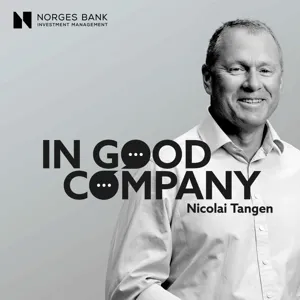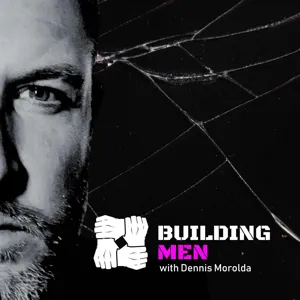Podcast Summary
Understanding Trust: A Belief in Someone or Something: Trust is a belief, essential for risks and collaboration, but can be fragile and contextual. Building relational trust takes time and effort.
Trust is a belief towards someone or something, and it's highly subjective and contextual. Trust is essential for taking risks, navigating uncertainty, and collaborating with others. The default is to trust, but it can be quickly torn down, especially in transactional situations. Building relational trust takes time and effort, but it's harder to tear down once established. When discussing trust in someone or something, it's important to consider what we're trusting them to do and what we're not trusting them to do. For example, do we trust politicians to run a country properly? The answer depends on the context. Many organizations and companies focus too much on transactional trust and not enough on the relational human component, which is harder to tear down. Ultimately, trust is a belief, and it's crucial for personal and professional success in today's complex world.
Shifts in Trust: From Interpersonal to Institutional to Autosapient: Trust is essential for happiness and is shifting from interpersonal to institutional to autosapient, with technology and intelligent machines playing a growing role.
Trust in government and societal institutions is at an all-time low due to a perceived misalignment of interests. This issue of misalignment cuts across various demographics and aspects of life, from taxes to education and healthcare. Trust is crucial for happiness, as seen in cultures like Finland, where high levels of trust lead to greater happiness. This trust is fostered by a sense of community and collective interest. Trust has been changing over time, transitioning from local, highly interpersonal trust to distributed trust through institutions, and now towards autosapient trust through technology and intelligent machines. Understanding these shifts in trust can help us navigate the complexities of modern society.
Trust in the Digital Age: From Institutions to Individuals: The digital age has transformed trust through individual connections and the exchange of value, leading to innovative platforms. However, handling issues and maintaining trust in new environments remains a challenge.
The digital space and mobile phones have revolutionized trust by enabling connections between individuals and facilitating the exchange of various forms of value. This shift from institutional trust to individual trust has led to the creation of innovative platforms like Alibaba, eBay, Uber, Airbnb, and education platforms. However, the challenge lies in handling issues that arise when things go wrong. For instance, trusting strangers through platforms like Airbnb can be uncomfortable, leading to questions about when we will trust machines. The rapid advancement of technology, such as AI, has led to initial skepticism and rejection in high-stakes environments, but turnarounds are happening at an alarming rate. In the workplace, working from home can trigger micromanagement and low trust due to the lack of face-to-face interaction, leading to negative narratives in the gap created. Overall, trust in the digital age is a complex issue that requires ongoing exploration and adaptation.
Building trust in remote work settings: Despite the challenges of demonstrating productivity and forming deep connections virtually, it's crucial to find ways to build and maintain trust in remote work environments.
Remote work brings up unique challenges in building and maintaining trust between colleagues and leaders. People feel the need to constantly demonstrate their productivity due to a lack of trust from their bosses, who may not have experience managing remotely. Additionally, the human connection and energy that comes from face-to-face interactions are difficult to replicate virtually, potentially leading to a loss of trust-building skills. This tension between productivity and trust, as well as the difficulty of forming deep, vulnerable connections in a virtual environment, highlights the importance of finding ways to effectively build and maintain trust in remote work settings. Further research and exploration are needed to understand how to navigate these challenges and foster trust in a virtual workplace.
Identifying the root cause and providing support during crises: Empathize, understand, and take action to address the issue to rebuild trust and move forward.
During times of crisis or trust issues, it's essential to identify the root cause and genuinely listen and understand the individual's perspective. However, listening alone is not enough; follow-through action and support are crucial. The first step is to help the person identify the real issue at hand, as their interpretation may differ significantly. Once the issue is identified, providing the necessary support, such as specialist help or relief from responsibilities, can help the person navigate through the crisis. A simple example is a negative performance review, where the individual may feel useless and unproductive. Instead of getting defensive, recognizing the truth in the feedback and taking action to improve can lead to personal growth. In essence, empathy, understanding, and action are key components in rebuilding trust and moving forward.
Unsupportive feedback and excessive digital surveillance impact morale and productivity: Focus on measuring value and productivity through open communication and trust, rather than physical presence or excessive digital surveillance.
Unsupportive feedback and excessive digital surveillance in the workplace can negatively impact employee morale and productivity. The use of digital productivity tracking tools, such as monitoring time online or installing video cameras, creates a low-trust environment and can lead to disengagement. Instead of focusing on measuring physical presence, organizations should prioritize measuring value and productivity through open communication and trust. The constant use of laptops or phones during meetings can also signal disrespect and disengagement, hindering effective collaboration. Embracing a mindset of speed, which allows for quick responses and efficient work, can help save time and improve overall organizational performance.
Pausing for Trust in the Digital Age: In the digital age, it's essential to pause and assess the trustworthiness of information and people before acting quickly, while also demonstrating empathy and building deeper relationships through thoughtful responses.
While speed is important for efficiency and responsiveness, it can also be the enemy of trust if it leads to hasty decisions or actions without proper consideration. Empathy plays a crucial role in building trust by demonstrating care and understanding for others. In the digital age, where technology strives to remove friction and make things quicker, it's essential to pause and assess the trustworthiness of information and people. Sending thoughtful, well-considered responses, rather than rushing to answer, can help build trust and foster deeper, more meaningful relationships. Additionally, being aware of the potential dangers of giving trust away too easily in a frictionless digital world is crucial for maintaining trust and avoiding scams or misinformation.
Balancing Character Traits and Capabilities for Effective Leadership: Integrity and empathy are essential character traits for building trust, while consistency is a key capability. Curiosity often accompanies empathetic leaders, and intensity can hinder trust formation.
Effective leadership involves a balance of both character traits and capabilities, with the importance of each varying depending on the situation. Two high-order character traits are integrity and empathy, which are crucial for building trust with those around you. While integrity is essential for maintaining trustworthiness, empathy allows leaders to connect with their teams on a deeper level. Curiosity, a related trait, often accompanies empathetic leaders, as they demonstrate genuine interest in others through active listening and asking questions. Consistency is another vital capability for building trust, as it allows people to know what to expect from their leaders and establish a reliable relationship. Intensity, while impressive, can be inconsistent and unpredictable, ultimately hindering the formation of strong trust.
Building and rebuilding trust through accountability, knowledge, and familiarity: Accountability, knowledge, and familiarity are crucial in building and rebuilding trust. Companies must acknowledge mistakes, communicate effectively, and be transparent in their response to crises to regain trust. Building knowledge and familiarity through consistent actions and adherence to mandates can help foster trust.
Trust is built and rebuilt through accountability, knowledge, and familiarity. When trust is breached, it's essential for individuals and organizations to take responsibility, be accountable, and make things right through action. Companies that fail to acknowledge their mistakes and lack transparency in their response to crises can find it difficult to regain trust. On the other hand, building knowledge and familiarity can help foster trust. People tend to trust what they know and understand. For organizations, this means effective communication, consistency in actions, and adherence to mandates. Ultimately, trust is a continuous process that requires ongoing effort and accountability.
Building trust requires capability and character: Demonstrate reliability and consistency for young professionals, communicate personal benefits, and build strong relationships based on mutual understanding and respect.
Building trust, whether it's for a financial institution like a sovereign wealth fund or an individual starting their career, requires both capability and character. Transparency is important, but it's not enough. People want to know how the fund or the individual benefits them personally. For young professionals, demonstrating reliability and consistency in the early stages of their career is crucial in building trust with their employers. Trust is a two-way street, and both sides need to communicate their interests, motives, and intentions honestly. The power dynamic between employers and employees has shifted, and understanding this relationship is essential to building and maintaining trust. For the fund, it's important to communicate how the wealth is positively impacting people's lives, not just the performance numbers. Trust is about building strong, authentic relationships based on mutual understanding and respect.
Reliability and Consistency Build Trust: Focus on being reliable and consistent to build trust and establish a strong foundation within your organization.
Being reliable and consistent is more valuable than being submissive or overtly deferential to an organization or leader. While showing up every day and demonstrating a strong desire for the job is important, it's the consistent effort and reliability that truly builds trust. Rachel's in-person attendance and dependability were commended as evidence of these traits, leading to increased trust and confidence from the speaker. Young professionals should focus on being reliable and consistent, rather than trying to be overly different or submissive, in order to build trust and establish a strong foundation within their organizations.



